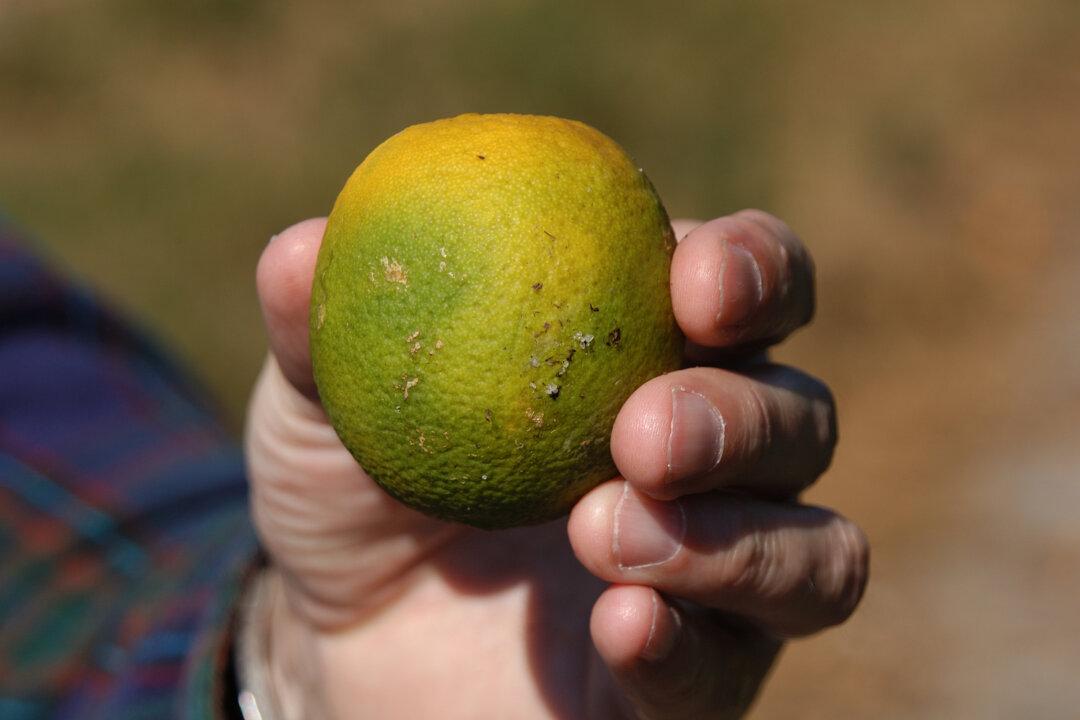SAN DIEGO—The California Department of Food and Agriculture declared a citrus quarantine in a 95-square-mile area of Rancho Bernardo Feb. 7 after detecting a potentially threatening citrus tree disease during routine inspections.
The disease, known as Huanglongbing, is a major threat to San Diego’s $115 million annual citrus crop, county officials said. Trees infected with bacterial disease can produce misshapen and bitter fruit, and the disease can eventually kill the tree.





